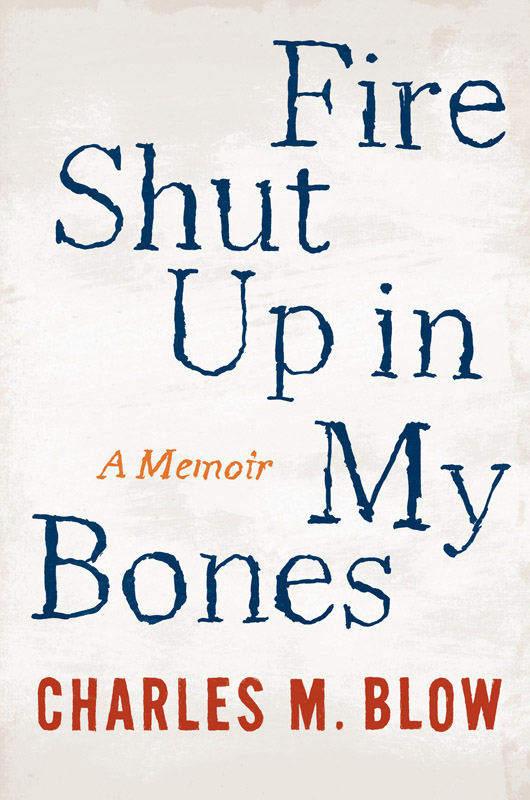New York Times Op-Ed columnist Charles Blow was a 20-year-old college student when he had an epiphany that freed him to let go of his past and fully accept himself. That moment of recognition came as he sped his car from Grambling State University toward his mother’s house, 25 miles away. His intended mission was to confront the cousin who had sexually molested him when he was seven years old. With a rusting .22 pistol by his side, Mr. Blow had every intention of killing the cousin whose betrayal brought on years of confusion, shame, self-hatred, repression and sadness.
But as he drove on a Louisiana highway that night nearly 25 years ago, Mr. Blow made the choice to turn back from his rage and to force himself to come to terms with the damage done. He chose to let go of his lifelong struggle with feeling dead and sensing that he was something ‘other’ in this ambitions, sexuality, and love of learning.” In that moment, Mr. Blow began a journey that would eventually lead to his career as a journalist at the New York Times and an outspoken observer of difficult subjects.
This pivotal moment serves as the opening scene for Mr. Blow’s memoir, Fire Shut Up in My Bones, published by Houghton Mifflin last September. Mr. Blow will take part in a panel on Saturday at the Harbor View Hotel titled Writing the Self at 2:30 p.m., and speak at the Chilmark Community Center on Sunday at noon and at 3:45p.m.
Since its publication, Fire Shut Up in My Bones has been recognized as a groundbreaking memoir for its coming-of-age tales of racial prejudice in the rural South, and overcoming educational and financial inequality to succeed professionally and personally. But an even bigger impact of the book is as a catalyst in the national conversation on boyhood and masculinity. In openly and frankly sharing his stories about the formation of his own masculine and sexual identity — shaped as it was by an absent father, molestation by family members and the societal pressure to conform — Mr. Blow explores what it means to be a boy and a man in today’s culture.
His book is in a way a homage to his mother Billie, a woman described by her son as “a do-right woman, not a good-time woman.” Charles Blow was born in 1970 in Gibsland, La. the youngest of five boys. His mother was a dutiful wife caught up in dead-end jobs. She proceeded to work her way through college to obtain a teaching degree and become a home economics teacher. She then went on to earn a master’s degree and won a seat on the school board in her local parish. And at the end of a long work day, despite exhaustion, she read the local newspaper front to back. Once a week, when the children’s section was published, Mr. Blow and his mother would read silently together.
Mrs. Blow’s steadfastness stands in contrast to Charles’s father, Spinner, a pool shark whose drinking and womanizing led Billie to force him out of their house and their marriage. But even his mother’s protection couldn’t prevent Charles’ sexual molestation at the hands of his cousin and then by a beloved but enfeebled uncle who attempted to grope him a year later.
Mr. Blow not only succeeds, but triumphs over these struggles. In the fourth grade a teacher smiled at him with approval and praised his performance, marking the first time he felt a teacher cared about him, truly saw him or believed in him. Going forward, he never got bad grades again. In fact, he excelled academically, and during an internship at the Shreveport Times, he synthesized his reporting talents with graphic design to create what we now call infographics. His work led The New York Times to create the first-ever graphics internship for him. And at age 25, Mr. Blow became the youngest newsroom department head at The New York Times, where he still works, writing for the Op-Ed column.
Charles Blow has said that he wrote Fire Shut Up in My Bones to give a voice to young children who feel intense despair and isolation. His is a brave story of finding the courage to resist pressure to conform or compromise.







Comments
Comment policy »